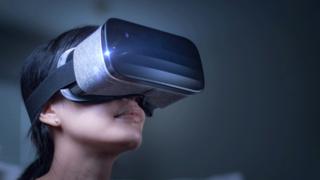MPs immerse themselves in VR questions
 Image copyright
Image copyright
Getty Images
Virtual reality is being integrated into a range of industries but remains unregulated, MPs heard
Experts have called for more regulation of immersive technologies such as virtual reality (VR) and augmented reality (AR).
It comes as UK MPs open an inquiry into the effects of such technologies on individuals and society.
They will also examine whether social media and gaming are addictive and harmful.
In the first hearing on the issues, MPs were told more studies were needed on the effects of VR.
“There are no guidelines for making such content and there is not enough data on what the long-term effects on the mind are,” Sarah Jones, head of the School of Media at Birmingham City University, told MPs.
Eighteen months ago, she spent 48 hours inside a VR environment as part of her own study into the psychological effect of living inside a different version of reality.
“I was interested to see whether I would wake up and not know that I was in a virtual world and that didn’t happen – I didn’t lose all sense of disbelief,” she told MPs.
While the impact was less than she had thought, she said, that “none of the big technology firms” had been prepared to back her project, which had led her to ask: “How long should you be in a VR headset for?”
Samsung, which makes the Gear VR headset, does stipulate that headsets should not worn by children under the age of 13.
“The opportunities for the technology are immense,” Ms Jones told MPs.
“There are a lot of platforms offering VR and it is really easy to get content out – but where does it sit?
“It doesn’t fall to Ofcom – but, wherever it does sit, there needs to be more regulation.”
Alcoholism awareness
VR is increasingly being used to highlight societal issues and one charity, Cornerstone Partnership, believes it could have a positive impact in social care.
It has trialled a series of 12 VR episodes showing what life is like for a child of an alcoholic parent, which have so far been watched by 500 professionals, including foster carers and social workers.
The charity said that the VR experience had helped teachers communicate better with vulnerable children living in an alcoholic environment and increased the empathy levels of carers.
Cornerstone’s chief executive, Helen Costa, said: “We have managed to shrink down the typical two to three years of traditional experiential learning to prepare people to foster, adopt or work with children into a matter of days.
“What I’d like now is to work with the best game-makers in the world to develop this technology for use by the youngsters themselves and turn it into an intervention that will turn lives around.
“Let’s use technology for better outcomes for our children.”




